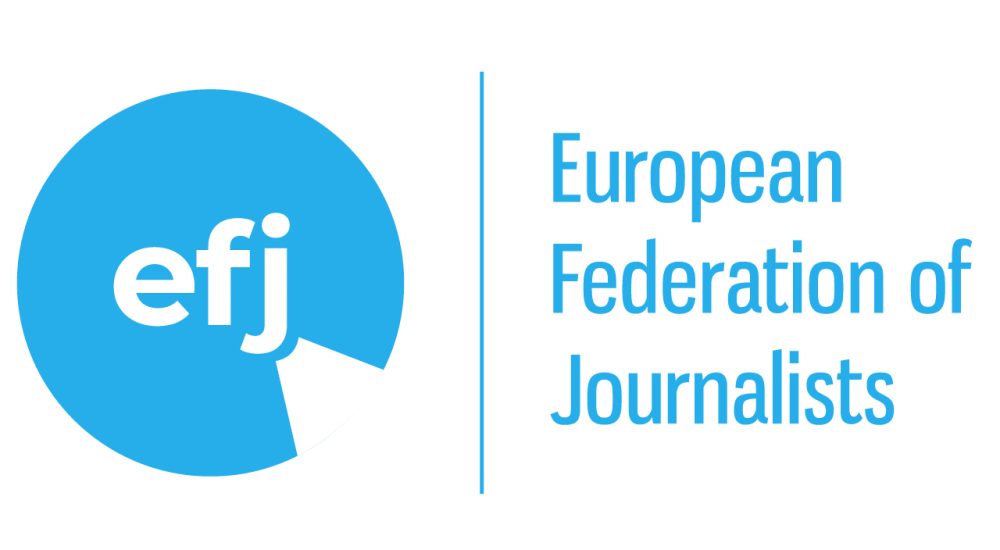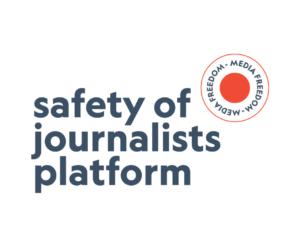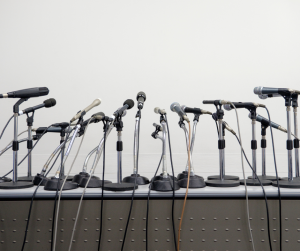Czech journalist Kristina Ciroková was recently declared a “suspicious individual” by Slovak prosecutor Lucia Pavlaninová after she reported on a Ukrainian cult that spread pro-Russia propaganda.
The International and European Federations of Journalists (IFJ-EFJ) firmly condemn this abuse of power and demand that the office of the prosecutor drop the charges.
On 25 September, the Regional Prosecutor’s Office in Žilina, northern Slovakia, started investigating Kristina Ciroková, a reporter for the Czech newspaper Seznam Zprav, for allegedly “supporting and promoting anti-cult movements”. This is related to her investigative work on cults, but more precisely to an article and a video she published on 19 December 2023, revealing the AllatRa cult leader Igor Danielov’s hiding place. The prosecutor asked Cirokova to provide additional information on her journalistic work and the people involved in her report, which she refused.
Cirikova’s lawyer, Sebastian Mach, told Seznam Zpravi that the charges were very vague, accusing the journalist of having “promoted the ideology of anti-cult movements and organisations, thereby committing the crime of founding, supporting and promoting a movement aimed at suppressing fundamental rights and freedoms”.
Her work on cults started in March 2023. She went to multiple European countries but she only went to Slovakia once in December for her report on AllatRa, a Ukrainian group that promotes conspiracy and pseudo-science theories. The BBC reports that the Orthodox Church of the Kyiv Patriarchate described it as an “occult para-religious organisation”.
As part of her investigation, Ciroková interviewed its leader, Igor Mikhailovich Danilov, who denied the pro-Russia accusations against its group.
Danilov risks 15 years of imprisonment because of the activity of AllatRa, which is accused by the Ukrainian government of supporting and denying the Russian invasion of Ukraine and spreading communist and Nazi symbols. He fled Ukraine to settle in Slovakia.
The suspicious nature of this interrogation also comes from the fact that while Pavlaninova is not officially part of the investigating team she took part in some of the investigation. Additionally, the prosecutor was called out for being involved with AllatRa.
AllatRa started a ‘rebuttal’ campaign in May 2024 claiming that its opponents were “anti-cultists” and Nazis, manipulating children and shooting schools and targeting Czech and Slovakian audiences.
The investigation also includes Slovak journalist Karolína Kiripolská as a witness. She was summoned for interrogation on 10 October by the deputy of the Regional Prosecutor’s Office in Žilina, Martin Kováč, two days after the publication of her article relating to AllatRa’s suspicious activity.
The Czech Syndicate of Journalists said: “We have warned repeatedly that journalists working in Slovakia are subject to pressure from the state authorities. The case of Czech journalist Kristina Cirokova from Seznam Zprava gives this problem an international dimension. We appreciate the way in which the employer stood up for its journalist. The steps taken so far by the Slovak prosecutor’s office can be interpreted as pressure not only on the journalist herself, but also on her editorial staff, and is not consistent with internationally-recognised standards of journalistic freedom. It is important to realise that the questioning of the rights of journalists and the media in Slovakia has direct implications for the entire European media scene.”
“The interrogation of both journalists to prevent them from publishing crucial information amounts to clear intimidation, has no legal basis, and is a breach of freedom of expression. There are absolutely no elements that justify the interrogation of our colleagues Ciroková and Kiripolská and we demand Pavlaninová Prosecutor office to drop all charges against them and let them work freely.”
Source: EFJ




